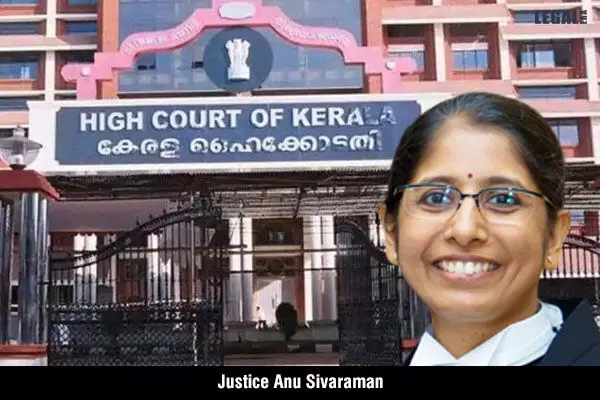- Home
- News
- Articles+
- Aerospace
- Artificial Intelligence
- Agriculture
- Alternate Dispute Resolution
- Arbitration & Mediation
- Banking and Finance
- Bankruptcy
- Book Review
- Bribery & Corruption
- Commercial Litigation
- Competition Law
- Conference Reports
- Consumer Products
- Contract
- Corporate Governance
- Corporate Law
- Covid-19
- Cryptocurrency
- Cybersecurity
- Data Protection
- Defence
- Digital Economy
- E-commerce
- Employment Law
- Energy and Natural Resources
- Entertainment and Sports Law
- Environmental Law
- Environmental, Social, and Governance
- Foreign Direct Investment
- Food and Beverage
- Gaming
- Health Care
- IBC Diaries
- In Focus
- Inclusion & Diversity
- Insurance Law
- Intellectual Property
- International Law
- IP & Tech Era
- Know the Law
- Labour Laws
- Law & Policy and Regulation
- Litigation
- Litigation Funding
- Manufacturing
- Mergers & Acquisitions
- NFTs
- Privacy
- Private Equity
- Project Finance
- Real Estate
- Risk and Compliance
- Student Corner
- Take On Board
- Tax
- Technology Media and Telecom
- Tributes
- Viewpoint
- Zoom In
- Law Firms
- In-House
- Rankings
- E-Magazine
- Legal Era TV
- Events
- Middle East
- Africa
- News
- Articles
- Aerospace
- Artificial Intelligence
- Agriculture
- Alternate Dispute Resolution
- Arbitration & Mediation
- Banking and Finance
- Bankruptcy
- Book Review
- Bribery & Corruption
- Commercial Litigation
- Competition Law
- Conference Reports
- Consumer Products
- Contract
- Corporate Governance
- Corporate Law
- Covid-19
- Cryptocurrency
- Cybersecurity
- Data Protection
- Defence
- Digital Economy
- E-commerce
- Employment Law
- Energy and Natural Resources
- Entertainment and Sports Law
- Environmental Law
- Environmental, Social, and Governance
- Foreign Direct Investment
- Food and Beverage
- Gaming
- Health Care
- IBC Diaries
- In Focus
- Inclusion & Diversity
- Insurance Law
- Intellectual Property
- International Law
- IP & Tech Era
- Know the Law
- Labour Laws
- Law & Policy and Regulation
- Litigation
- Litigation Funding
- Manufacturing
- Mergers & Acquisitions
- NFTs
- Privacy
- Private Equity
- Project Finance
- Real Estate
- Risk and Compliance
- Student Corner
- Take On Board
- Tax
- Technology Media and Telecom
- Tributes
- Viewpoint
- Zoom In
- Law Firms
- In-House
- Rankings
- E-Magazine
- Legal Era TV
- Events
- Middle East
- Africa
Kerala High Court rules inclusion of ‘electricity’ in KVAT Act does not imply tax liability

Kerala High Court rules inclusion of ‘electricity’ in KVAT Act does not imply tax liability
States that the appellant might have filed an inaccurate tax return but was not hiding turnover or evading taxes
The Kerala High Court has provided relief to the petitioner, ruling that even if the Income Tax department’s contention asserting that electrical energy is encompassed within the Kerala Value Added Tax (KVAT) Act is accepted, there’s no ground for escaped assessment.
The single-Judge bench of Justice Anu Sivaraman highlighted that the inclusion of electricity in the 1st Schedule of the KVAT Act did not entail any tax liability.
The petitioner, Srinivasa Builders, a registered partnership firm in Hyderabad, sought approvals to install a windmill in Ramakkalmedu, Kerala. It entered a supply agreement with Vestas Technology India Limited for a 750 KW Wind Electrical Generator, priced at Rs.4,09,01,000.
The petitioner argued that 'electricity' does not fall under the definition of 'goods' as per Section 2(xx) of the KVAT Act. Thus, it submitted nil returns despite being registered under the Act for windmill installation in 2008-2009.
However, the Revenue Department stated that the Commercial Tax Check Post declarations indicated undisclosed interstate purchases not recorded in its documents. The department held that since the registration was for selling electrical energy, filing a nil return did not comply with the Act and the Rules.
It maintained there was no provision to exclude total turnover even if the goods were exempted from tax. The assessment order assumed that the petitioner bought windmill parts via invoices to Kerala without providing evidence of the disposal of the goods.
The Court noted that even if the Revenue Department's argument that electrical energy was covered by the 1st Schedule was accepted, there wouldn't be any case of escaped assessment, as electricity's inclusion did not attract tax liability. Therefore, the petitioner's alleged offense would be limited to filing an inaccurate return, rather than hiding taxable turnover or intentionally evading taxes.
The Judge further stated that it was evident that a single windmill, in a knocked-down state, was transported into Kerala using three separate vehicles under a single bill or invoice. The Kerala State Electricity Board (KSEB) confirmed that one windmill was operational in Ramakkalmedu and generating energy supplied to them.
While allowing the writ petition, he ruled that the order, which did not fulfill the requirements of Section 25(1) of the KVAT Act, was unsustainable.



